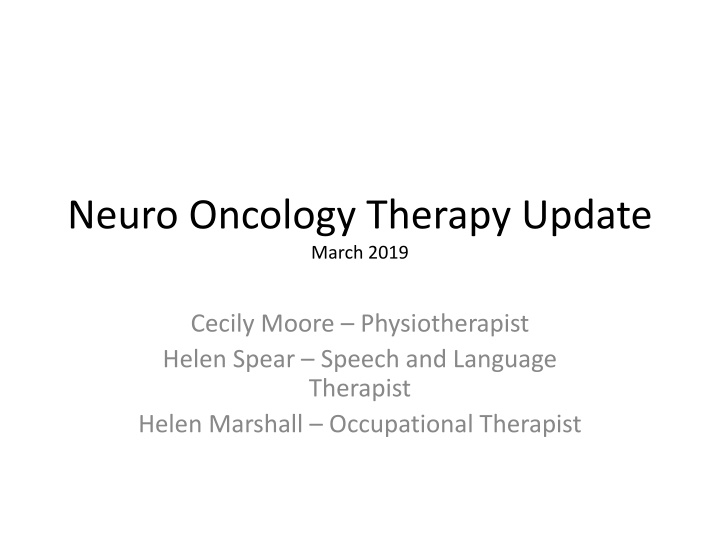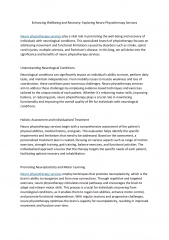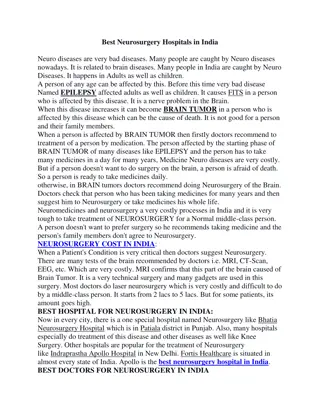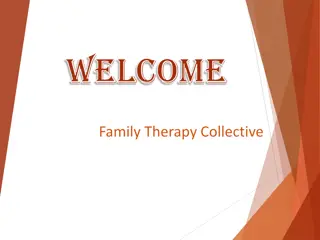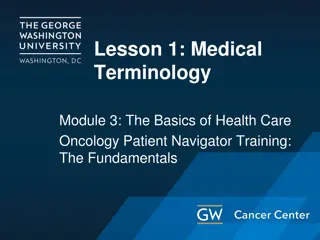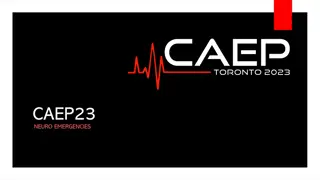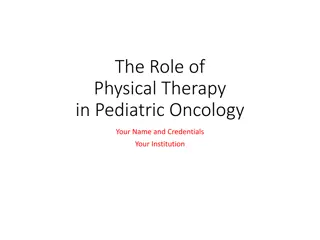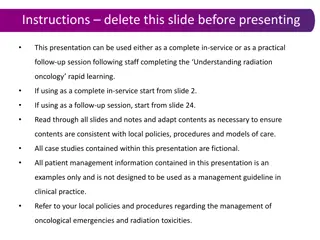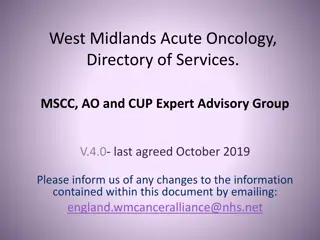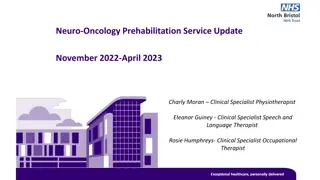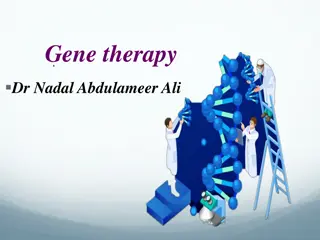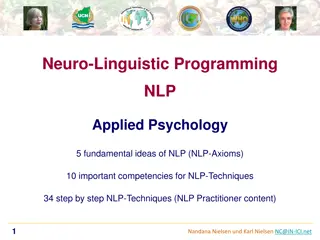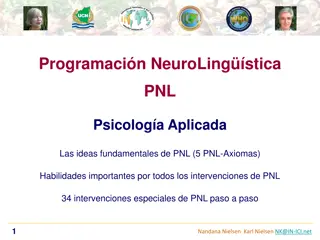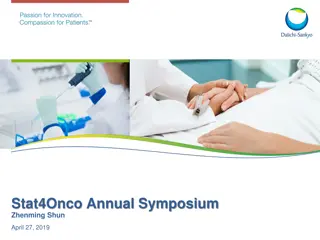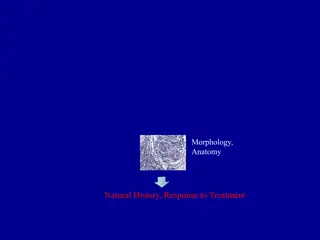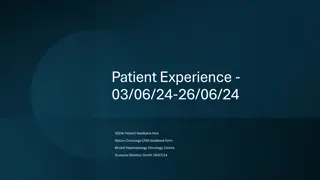Neuro Oncology Therapy Update
Physiotherapist, Speech and Language Therapist, and Occupational Therapist collaborate in providing prehab and post-operative therapy for neuro-oncology patients. The update includes prehab statistics, assessments, pros and cons, and post-operative assessments. Key elements involve baseline assessments, education on neurological deficits, referrals to support services, and anxiety management strategies.
Download Presentation

Please find below an Image/Link to download the presentation.
The content on the website is provided AS IS for your information and personal use only. It may not be sold, licensed, or shared on other websites without obtaining consent from the author.If you encounter any issues during the download, it is possible that the publisher has removed the file from their server.
You are allowed to download the files provided on this website for personal or commercial use, subject to the condition that they are used lawfully. All files are the property of their respective owners.
The content on the website is provided AS IS for your information and personal use only. It may not be sold, licensed, or shared on other websites without obtaining consent from the author.
E N D
Presentation Transcript
Neuro Oncology Therapy Update March 2019 Cecily Moore Physiotherapist Helen Spear Speech and Language Therapist Helen Marshall Occupational Therapist
Current OT/PT Service Physiotherapy and SLT representative at neurooncology MDT meetings Identification of patients for prehab from MDT based on referral information Neurooncology nurse specialist contacts therapist to assess in neurosurgery clinic if required Post operative therapy available on the wards
Prehab statistics 5 patients referred for prehab in 6/12 (4 brain, 1 spine). 4 patients seen in clinic, 1 patient received telephone triage SLT sees patients pre-operatively for awake craniotomy with language mapping as requested by the neuro surgical team Outcomes All patients received baseline assessment, although 2 patients unable to complete full assessment due to fatigue following neurosurgery clinic. 2 patients given orthotics 1 patient given a walking aid. 1 patient referred to visual impairment team and given advice/education. 3 patients referred to local community therapy teams for further assessment at home/provision of equipment for ADLs.
Prehab Assessment Baseline cognitive assessment Baseline physical assessment Baseline speech and language assessment Education re neurological deficits and strategies to manage these deficits (e.g. how to manage sensory impairment) Education for family members of how to manage cognitive and behavioural impairments Signposting to support agencies Referrals to community services including rapid response, rehabilitation teams, equipment prescription Referrals to orthotics Discussions with GPs and members of hospital neuro-oncology MDT re medical management of patients (e.g. seizure control) Education regarding preparation for surgery Anxiety management
Pros/ Cons Prehab Pro s Allows for more timely support services to be put in place Enables therapists to establish if there have been any changes post op Can help increase the speed of discharge following surgery Can help reduce anxiety of patient and their families Con s Pre-op clinic can be lengthy and thus fatiguing for the patient, hence engagement in therapy assessment at this time may not be considered a priority for the patient and they may not wish for assessment at this time Relies on therapy staff being available
Post operative assessment Ward based Holistic assessment of: Function Physical performance Cognition / communication / mood Physio, OT, SLT, neuropsychology (on request) Anticipate needs on hospital discharge Highlight areas of vulnerability Highlight areas of potential for improvement (could be remedial or compensatory) Identify patient and family awareness of condition, prognosis etc. Inform MDT of assessment outcomes to enable treatment decision making
Challenges Lack of robust pathway to ensure all patients that require prehab are referred and assessed prior to their operation date Insufficient referrals to accurately interpret benefit Logistical complications with timely appointment bookings, transport, room availability, therapist availability Quick turnaround between being identified at MDT and the operation date Emotional impact of diagnosis and preparation for surgery- increased length of time of appointments and interventions required Lack of inpatient 7 day service impacts LOS; Patients may opt not to have surgery.
MDT Reflections/Suggestions How many patients do you feel would benefit from prehab coming through the clinics? Consultants/ANPs to contact therapist directly from clinic if assessment required? (Depending on numbers this may require more funding) More discussion in MDT meeting to help identify appropriate patients?
